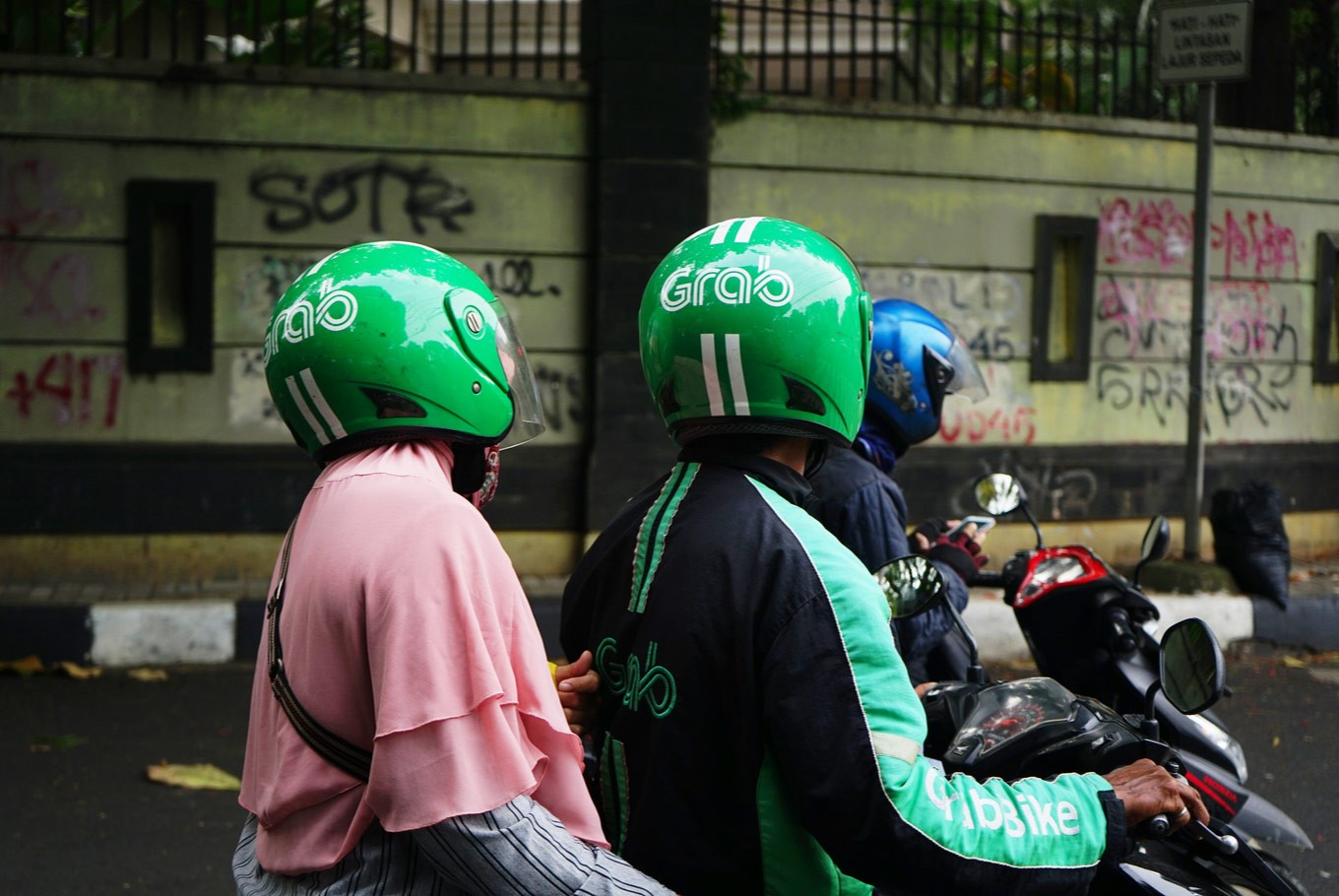Popular Reads
Top Results
Can't find what you're looking for?
View all search resultsPopular Reads
Top Results
Can't find what you're looking for?
View all search resultsGrab Indonesia wants you to know it cares about women's safety
Plan comes after public criticizes company’s handling of sexual harassment case.
Change text size
Gift Premium Articles
to Anyone
A
pp-based ride-hailing company Grab Indonesia has announced a plan to expand in-app safety features and educate drivers about sexual harassment for the provision of a service that is safer for both female drivers and female passengers.
Grab Indonesia managing director Ridzki Kramadibrata said his company would double its safety-related investments in order to execute the plans, although he did not state the exact amount.
“Our goal is to bring to zero the number of sexual harassment incidents that are completely preventable,” he said in Jakarta recently.
The announcement came after Grab came under fire last month when the company tweeted that it was trying to arrange a meeting between a Grab Indonesia driver and a victim in order to settle a sexual harassment accusation — the driver allegedly kissed the victim on the lips without consent and then asked for a five-star rating.
Grab Indonesia subsequently tweeted “the victim still refuses to meet the driver”, prompting netizens to launch the #UninstallGrab campaign on Twitter, criticizing the company for being incapable of understanding and protecting its female customers.
The campaign was a hard blow to a company already facing stiff competition from homegrown rival Go-Jek, which dominates the domestic tech-based transportation industry, including in food and goods delivery, with an 80 percent market share, according to the Business Competition Supervisory Commission.
If Grab weakens its foothold in Indonesia, it may mean losing Southeast Asia’s largest and fastest-growing ride-hailing market, which is expected to triple in value from US$3.7 billion this year to $14 billion in 2025.
Responding to the outcry in early November, Grab Indonesia launched a new feature in Jakarta that conceals passengers’ and drivers’ phone numbers from each other, which it claims has reduced unsolicited phone calls by 70 percent.
Grab also launched, for the protection of passengers, a “share my ride” feature that would allow passengers to share their locations with trusted persons and an emergency SOS button that would send a pre-set text message to a customer’s trusted contact person.
Ridzki said these two features would be extended next year to drivers, who were equally vulnerable to assault from passengers.
Grab motorcycle driver Maya, who started to work for the company three years ago to help feed her three children, told The Jakarta Post that she welcomed both the recently added and upcoming safety features.
Maya, a part-time housewife, said she worked almost every day delivering food, packages and passengers, about 50 percent of whom were men and who sometimes sent her unsolicited flirtatious messages.
“I’m not bothered by the men. I feel quite safe as a driver now,” she said.
Ridzki added that Grab would partner with the National Commission on Violence Against Women (Komnas Perempuan) to outline a better procedure for handling sexual harassment cases and to design a workshop on sexual harassment for drivers.
He said the workshop would be compulsory for newly recruited drivers and be condensed into a mandatory in-app online course for existing drivers, although he did not provide details of either the workshops or procedures.
However, Komnas Perempuan chairwoman Azriana Manalu urged Grab Indonesia to design a procedure that assigns a person — instead of an automated response system — who understands sexual harassment to hear out, console and advise victims.
In regards to the workshop, she said Grab should inform drivers of the shame they would bring upon themselves, their families and their affiliated institutions if they are implicated in a sexual harassment case.
She praised Grab for its proactive effort in trying to improve itself, but said it still needed to create a support system to facilitate the recovery of past victims.
“We hope that Grab’s initiatives can become industry best practices for a transportation service safe for women,” she said.
This article was originally published in The Jakarta Post's print edition on Dec. 3, 2018, with the title "Grab Indonesia promises women-friendlier rides".











